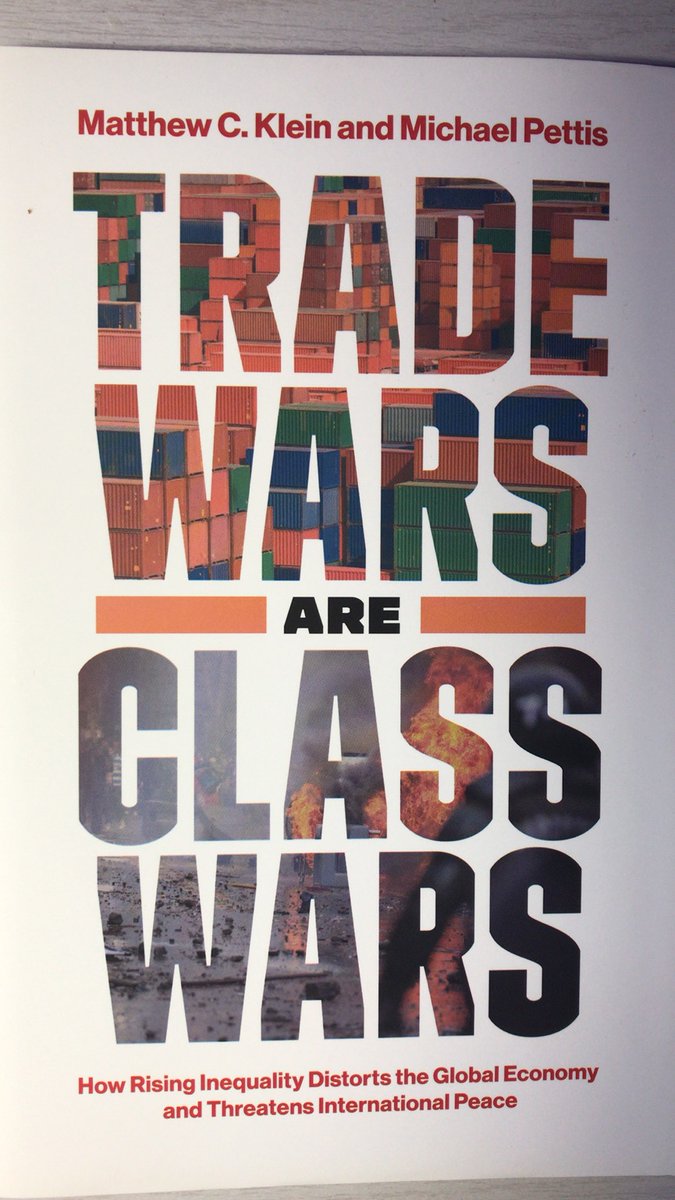1/7
Atif Mian argues here that "There are two main forces behind the rise of imbalances that have generated the debt supercycle: the saving glut of the rich and the global saving glut."
He is right, and policymakers should understand why.
@AtifRMian imf.org/en/Publication…
Atif Mian argues here that "There are two main forces behind the rise of imbalances that have generated the debt supercycle: the saving glut of the rich and the global saving glut."
He is right, and policymakers should understand why.
@AtifRMian imf.org/en/Publication…
2/7
In advanced economies (and some developing ones), investment is not constrained by scarce savings but rather by weak demand. In that case excess savings in one sector (a savings glut) doesn't lead to higher investment. In fact it may even lead to lower investment.
In advanced economies (and some developing ones), investment is not constrained by scarce savings but rather by weak demand. In that case excess savings in one sector (a savings glut) doesn't lead to higher investment. In fact it may even lead to lower investment.
3/7
But if investment doesn't rise, total savings cannot rise either, so that excess savings in some sectors of the economy (in the form of a saving glut of the rich, or of large foreign inflows) must lead to lower savings in other sectors.
carnegieendowment.org/chinafinancial…
But if investment doesn't rise, total savings cannot rise either, so that excess savings in some sectors of the economy (in the form of a saving glut of the rich, or of large foreign inflows) must lead to lower savings in other sectors.
carnegieendowment.org/chinafinancial…
4/7
There are mainly three ways savings in other sectors can be forced down. Unemployment can rise (unemployed workers have negative savings), or if the authorities want to prevent that rise, they can either set off a rise in household debt or an increase in the fiscal deficit.
There are mainly three ways savings in other sectors can be forced down. Unemployment can rise (unemployed workers have negative savings), or if the authorities want to prevent that rise, they can either set off a rise in household debt or an increase in the fiscal deficit.
5/7
Savings must balance with investment, in other words, and savings gluts that don't lead to higher investment must be balanced with lower savings elsewhere, either in the form of higher unemployment, higher household debt, or higher fiscal deficits.
Savings must balance with investment, in other words, and savings gluts that don't lead to higher investment must be balanced with lower savings elsewhere, either in the form of higher unemployment, higher household debt, or higher fiscal deficits.
6/7
That is why we cannot meaningfully reduce US debt until we reverse domestic income inequality and/or resolve the US role as absorber of last resort of global savings imbalances. High levels of income inequality and large US trade deficits mean that surging household...
That is why we cannot meaningfully reduce US debt until we reverse domestic income inequality and/or resolve the US role as absorber of last resort of global savings imbalances. High levels of income inequality and large US trade deficits mean that surging household...
7/7
and government debt are the main alternatives to higher unemployment. Because high unemployment is unacceptable, as long as the US is willing to absorb domestic and foreign savings gluts, American debt must continue to surge.
and government debt are the main alternatives to higher unemployment. Because high unemployment is unacceptable, as long as the US is willing to absorb domestic and foreign savings gluts, American debt must continue to surge.

• • •
Missing some Tweet in this thread? You can try to
force a refresh




